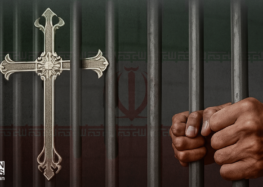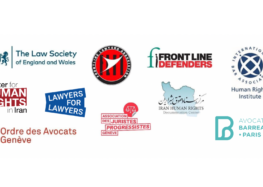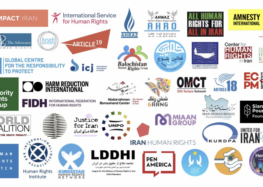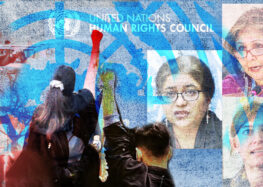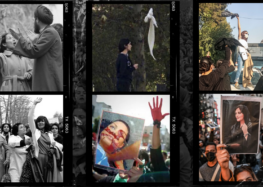Iran’s Human Rights Showing Little Progress, UN Votes to Renew Special Mandate
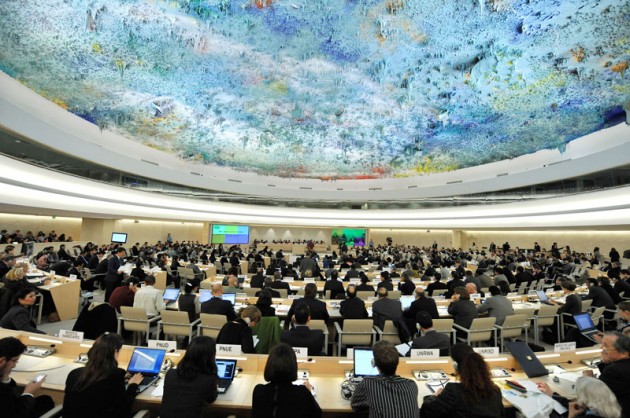 March 28, 2014– The United Nations Human Rights Council voted 21 to 9 to renew the mandate of Special Rapporteur Ahmed Shaheed, a welcome development for human rights in Iran, the International Campaign for Human Rights in Iran said today.
March 28, 2014– The United Nations Human Rights Council voted 21 to 9 to renew the mandate of Special Rapporteur Ahmed Shaheed, a welcome development for human rights in Iran, the International Campaign for Human Rights in Iran said today.
The vote signals continued concern in the international community that the human rights situation has not improved as expected since the inauguration of President Hassan Rouhani, the Campaign added. The resolution to renew the mandate received 21 votes in favor, 9 against, and 16 abstentions.
“By renewing this mandate, the Human Rights Council is sending a strong message to the Iranian government that words are not enough. The world needs to see real, meaningful changes in Iran’s human rights situation,” said Hadi Ghaemi, executive director of the Campaign.
Argentina, Austria, Botswana, Brazil, Chile, Costa Rica, Czech Republic, Estonia, France, Germany, Ireland, Italy, Japan, Mexico, Republic of Korea, Montenegro, The Netherlands, Peru, Romania, UK, and the United States voted yes for the resolution.
India, Indonesia, Kazakhstan, Pakistan, Russia, Venezuela,Vietnam, China, and Cuba opposed the resolution.
During the current session of the UN Human Rights Council, both Secretary General Ban Ki-Moon and Special Rapporteur Shaheed presented reports documenting continued human rights violations in Iran, and the Iranian delegation issued its response, drafted by the Iranian Judiciary though this year lacking in the harsh ad hominem rhetoric of years past.
A large number of Iranian non-governmental organizations, many of them close to the government, were present in Geneva during this 25th session of the Human Rights Council. Two different sources close to the Iranian delegation told the Campaign that there is an increasing demand within Iran to have a different attitude adopted by the Iranian government regarding Shaheed’s report.
“The Iranian government should stop personal attacks on the Rapporteur in response to his report. We have become more and more marginalized within the UN human rights bodies, and Iran’s attitude has not helped make things better,” one source close to the Iranian delegation told the Campaign.
Indeed, a major factor contributing to the renewal of the Special Rapporteur’s mandate is Iran’s continued refusal to cooperate with human rights mechanisms. For example, since 2005, no special mandate holder has visited Iran, which must invite and provide visas for special mandate holders to be able to enter.
This year, however, has seen a slight shift in Iran’s dealings with the Special Rapporteur. Despite personal attacks against Shaheed by Judiciary officials, the Iranian Judiciary has been communicating with the Special Rapporteur over the last six months, the Campaign has learned.
The Special Rapporteur has even met and spoken with a high level official of the Judiciary, as well as with the Iranian ambassador to the UN. However, these communications have not yet led to permission for Shaheed to visit the country.
The Campaign notes the positive developments in opening these lines of communication between Iran and the UN and urges the Iranian government to cooperate fully with the Special Rapporteur and all UN human rights mechanisms.
“We welcome that the Iranian Judiciary has finally started communicating with the Rapporteur, but it’s not enough. Iran’s non-cooperation with UN mechanisms is the most telling factor in the human rights situation, and the renewal of Dr. Shaheed’s mandate shows that Human Rights Council members see the urgency of continuing such reports,” said Ghaemi.

